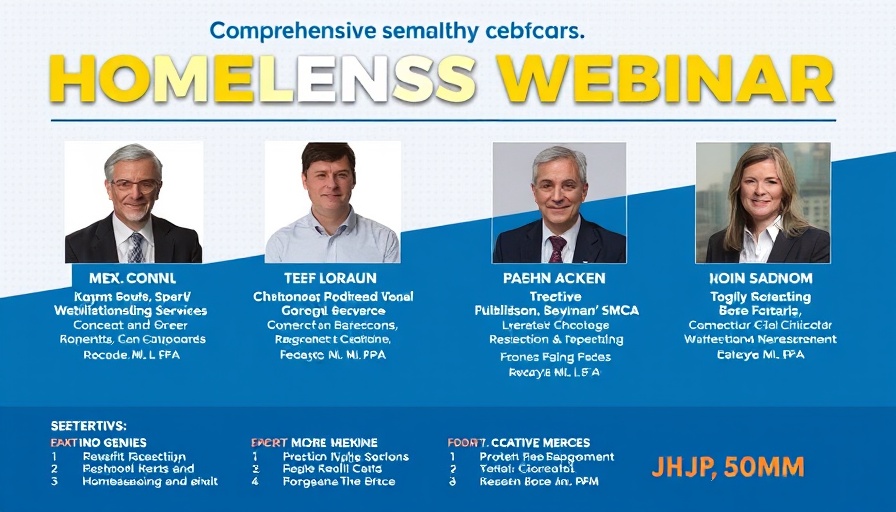
Understanding the Context of Homelessness in America
The issue of homelessness has been a continuous and pressing concern across the United States. In recent years, cities have increasingly resorted to aggressive measures, popularly known as 'sweeps', to clear homeless encampments. These efforts often come as a reaction to rising homelessness in urban areas, with authorities claiming it is necessary for public health and safety. However, critics assert that such approaches criminalize poverty rather than address its root causes.
Concerns Over the Criminalization of Homelessness
As we see in Washington D.C., the latest strategies being considered by authorities involve not just the removal of homeless individuals but also potential arrests and mandatory treatments for underlying substance use disorders. Activists and professionals working in this field argue that effectively combating homelessness requires a focus on long-term solutions, such as affordable housing, mental health support, and job training programs.
Voices from the Field: Activism and Response
In light of the impending policies, frontline workers—those directly engaging with homeless populations—are expressing skepticism. The question remains: Will these strategies lead to lasting change? Many believe that simply removing individuals from public spaces does not solve the fundamental issues at hand. Activists stress the importance of including people experiencing homelessness in conversations about their needs and solutions.
A Broader Perspective on Health and Wellness
Integral to discussions about homelessness are the topics of health and wellness. As cities consider more punitive measures, it is critical to look at the mental and physical health impacts on those without stable housing. Engaging in healthy practices can be challenging for individuals facing homelessness, but community programs focused on nutrition, fitness, and mental health can foster resilience and empowerment. Wellness is not merely about physical health; it encompasses emotional well-being, social supports, and access to needed resources.
Learning from Experience: Past Approaches and Their Failures
Community leaders, journalists, and health practitioners can draw from past experiences to inform current strategies. For instance, cities that have instituted comprehensive support systems such as safe shelter options, robust mental health services, and job training have shown better outcomes in dealing with homelessness than those relying on sweeps and punitive measures. By examining both successful and failed initiatives across the country, reporters can craft more nuanced and informed narratives around homelessness.
The Role of Reporting in Shaping Public Perception
As the media covers these sensitive topics, reporters have a unique responsibility to ensure that stories surrounding homelessness are framed with empathy and respect. Highlighting the human experience behind the statistics foster a better understanding among the public and can even drive more compassionate policies. Journalism can play a significant role in shaping the narrative around homelessness, prioritizing humane solutions over criminalization.
Call to Action: Become Informed and Advocate for Change
As a health enthusiast in your community, you can make a difference. Whether through direct involvement in local initiatives or spreading awareness about the needs of those experiencing homelessness, every action counts. Educate yourself and others about the importance of mental health support and wellness services in addressing the crisis of homelessness. Consider engaging in discussions that advocate for systemic changes to create a more supportive and inclusive society.
 Add Row
Add Row  Add
Add 




Write A Comment